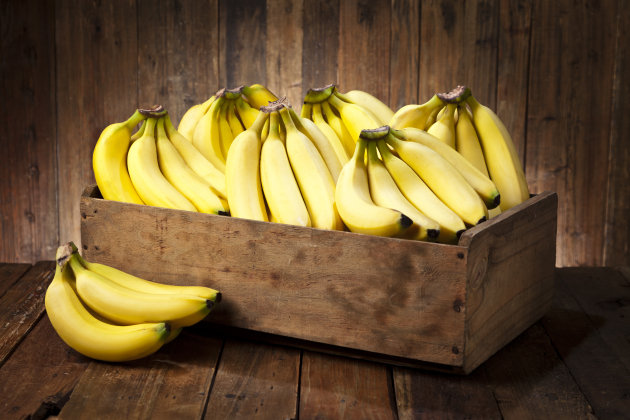I live on Baker Road in Wellfleet, Massachusetts. Baker is a common American name, so the fact that I live on that street probably doesn’t mean much to anyone. When I tell folks that my street was named in honor of my town’s native son, Lorenzo Dow Baker, it still doesn’t mean much. And when I tell fishermen that they should know that name, they scratch their heads. They know the names of Bill Dance, Flip Pallot, and others, but they have never heard of Baker. But they should ’cause Baker introduced the banana to the United States.
Pull out a sack full of ham and cheese sandwiches during a fishing trip on a boat and everyone wants one. Pull out a bunch of bananas on that same vessel and you’ll be lucky if you don’t get pitched overboard. Granted, anglers and sailors are a superstitious lot, but what’s the big deal with the fruit?
Baker was born in Wellfleet in 1840, and by the time he was 41 years old he was a tremendously wealthy man. He made his fortune as a ship’s captain and later on as a businessman, and his fleet ran from Jamaica to a variety of ports transporting sugar, bamboo, and spices. Although the banana first arrived in Salem, Massachusetts, in 1690 (it was reported to have tasted like soap), Baker is the man single-handedly responsible for introducing the banana to the United States and for creating a multinational company in the process.
His fruit trafficking began honestly. When Baker realized that he had extra room in his hold, he filled the space with a new fruit that he enjoyed in the tropics: bananas. He purchased green bananas and sold them at a profit of $2 per bunch. Put in today’s numbers, his $320 investment equated into a profit of $5,612. Not bad. Not bad at all.
Baker continued to harvest green fruit that would ripen during the long journey, and, in time, Americans went wild for the new fruit. Baker promptly formed the Boston Fruit Company that then became the United Fruit Company and is now Chiquita Brands International.
Because bananas were new to North America, operating instructions came along with them. According to 1870’s Domestic Cyclopaedia of Practical Information, “Bananas are eaten raw, either alone or cut in slices with sugar and cream, or wine and orange juice. They are also roasted, fried, or boiled, and are made into fritters, preserves, and marmalades.”
At around that time, fishermen became superstitious of bananas on boats and boycotted them in a big way. To this day, some charter captains won’t even allow Banana Republic clothing or Banana Boat sunscreen on board.
So, why is it OK to have a bag of chips on board but not a banana? Here are some reasons as to why bananas are “bad for fishing,” and if you have more I’d love to hear them.
- In the late 1800s, boats carrying bananas had to sail quickly in order to reach port before the fruit began to rot. The speeds that they set forth were faster than normal trolling speeds, and that meant that very few, if any, fish were caught. Think about it: Give a hungry sailor a banana instead of a fresh fish filet and you’ll be sure to have a crew on the verge of mutiny. As far as bananas equating to catching no fish, I’d have to agree with this one.
- Death by bananas. A second variation that I’ve heard is that boats carrying bananas were likely to cause death. As the fruit rotted it produced a byproduct of methane gas. Since bananas were stored in a closed area like a cargo hold, the gas would build and build. Any sailor who went below and inhaled the toxic fumes was likely to get sick or die. The superstition of carrying no bananas on board a fishing vessel meant that no one would get hurt.
- Death by bananas redux. There wasn’t a whole lot of inspection going on back in the day, and that meant that when bananas were loaded into crates there wasn’t a way to tell what else was lurking in the boxes. Legend has it that deadly snakes and spiders would routinely find their way into the fruit crates, and when a crew member loaded or offloaded the bananas there was a strong likelihood that he’d get stung by a spider or bitten by a snake. Death or serious injury from a tarantula bite was not unusual in those days.
- Slippery when wet. Some of the sailors would throw their peels overboard, but those who tossed the banana skins on the deck would jeopardize their crew members’ safety with a potential slip or fall.
It’s likely that for these reasons, among others, a select group of captains began the superstition by telling their crew to leave the crates of bananas on shore—or be cursed with bad luck. Nothing good would come from the fruit, they’d say, and it was not welcome aboard. That saying has carried over to the captains of today, with a few cuss words added for flavor.
Author’s note: August 27 is National Banana Lovers Day. Enjoy them in the kitchen for breakfast, but if you want to be asked back on a friend’s boat, leave the yellow monsters at home.

